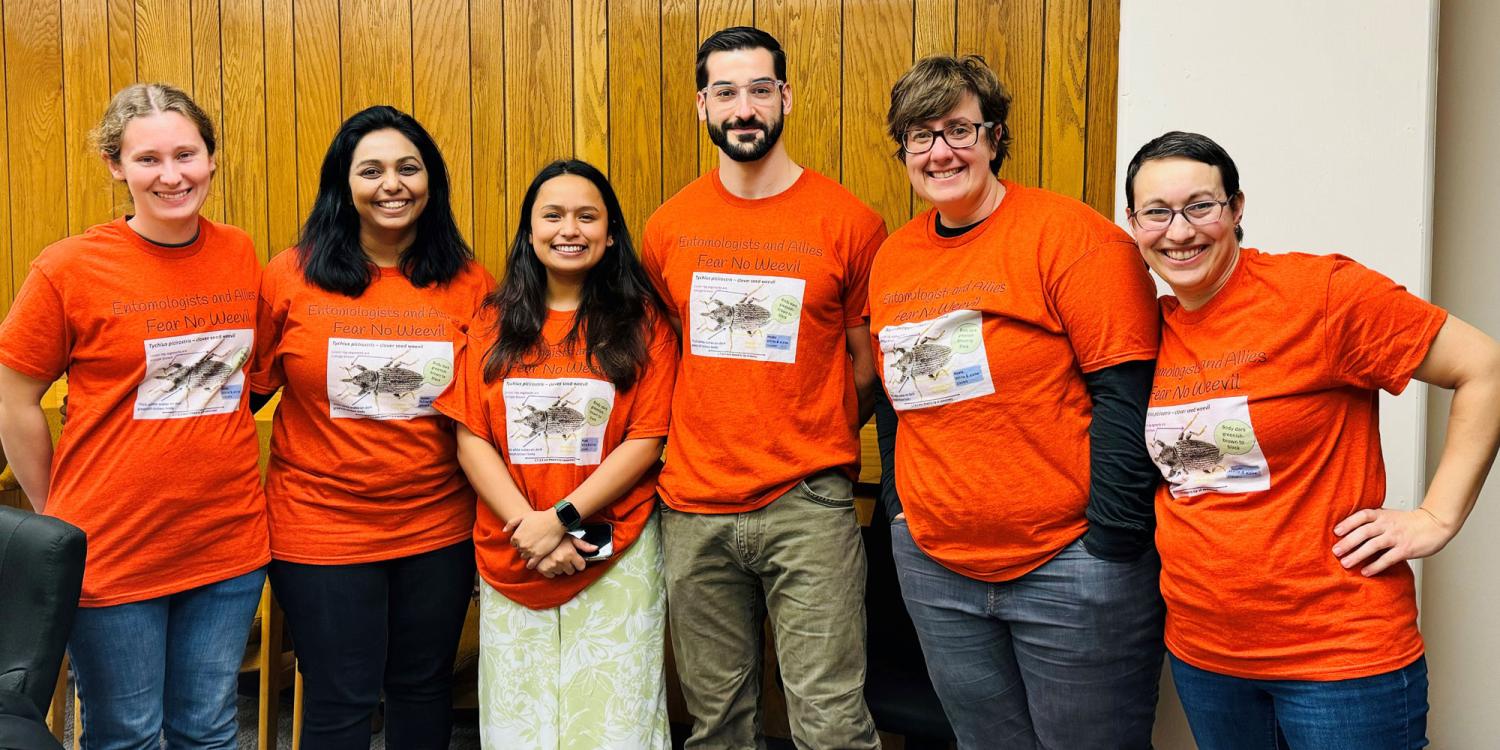
Clover seed weevil is a serious insect pest that impacts Willamette Valley's white clover seed production. Historically, clover seed growers have relied heavily on broad-spectrum pyrethroid insecticides, including bifenthrin, as a management practice. However, since 2017, white clover seed growers have anecdotally reported poor efficacy and control failures with pyrethroid insecticides.
In response, the Oregon State University weevil research team, which includes OSU Extension Service faculty, conducted research trials to evaluate the resistance levels of clover seed weevil. Over the course of the 2022 and 2023 growing seasons, various laboratory and commercial field plot studies were conducted to monitor weevil resistance and evaluate new chemistries for rotational strategies. Findings showed bifenthrin showed little suppression of the weevil in either adult or larval form.
As a result of this research, the Extension team advised white clover growers to stop using bifenthrin and instead use Malathion at the pre-bloom crop growth stage, followed by chlorantraniliprole (trade name Vantacor) at full bloom. The team demonstrated that other products with new modes of action could effectively manage this pest, but these products still need to be registered for clover seed crops.
A request with supportive data was submitted to the Oregon Department of Agriculture to consider a specialty local needs label for indoxacarb in white clover seed crops. Products with new modes of action will allow growers to develop a sustainable insecticide resistance management program for this pest. The rotational strategies would specifically target larval life stage and, therefore, be more effective than bifenthrin.
In collaboration with the Oregon Clover Commission, the team presented these results at four grower meetings and one OSU Extension-led workshop. Three Extension seed production reports were made available during 2020-2023. These provide growers with yearly progress on the project. One peer-reviewed article was published in the Journal of Economic Entomology, and a second is being reviewed. A guide focusing on the biology of the pest and revised management guidelines has been submitted as an OSU Extension catalog publication.
Based on the information shared in the workshop, none of the attendees planned to continue using bifenthrin products as they had prior to learning that clover seed weevils had developed resistance. Two thirds of the attendees said they no longer would use bifenthrin for clover seed weevil control, 78% planned to use the monitoring method taught in the workshop. All of the remaining respondents planned to adjust their management by increasing the use of other products.
The research team published "Management Guidelines for the Clover Seed Weevil in Oregon White Clover Seed Production" in the OSU Extension catalog.
The weevil research team includes: Navneet Kaur, assistant professor and Extension field crops entomologist; Christy Tanner, assistant professor of practice and Extension seed production agronomist; USDA-ARS entomologist Seth Dorman; OSU graduate student Grace Tiwari; Nicole Anderson, Extension statewide seed production specialist; and Dani Lightle, assistant professor of practice and OSU IR-4 specialty crops pesticide registration research leader.
The research is supported by a grant from Western Sustainable Agriculture Research and Education (Western SARE), a program of the U.S. Department of Agriculture National Institute of Food and Agriculture, as well as Oregon Clover Commission and OSU Agricultural Foundation.